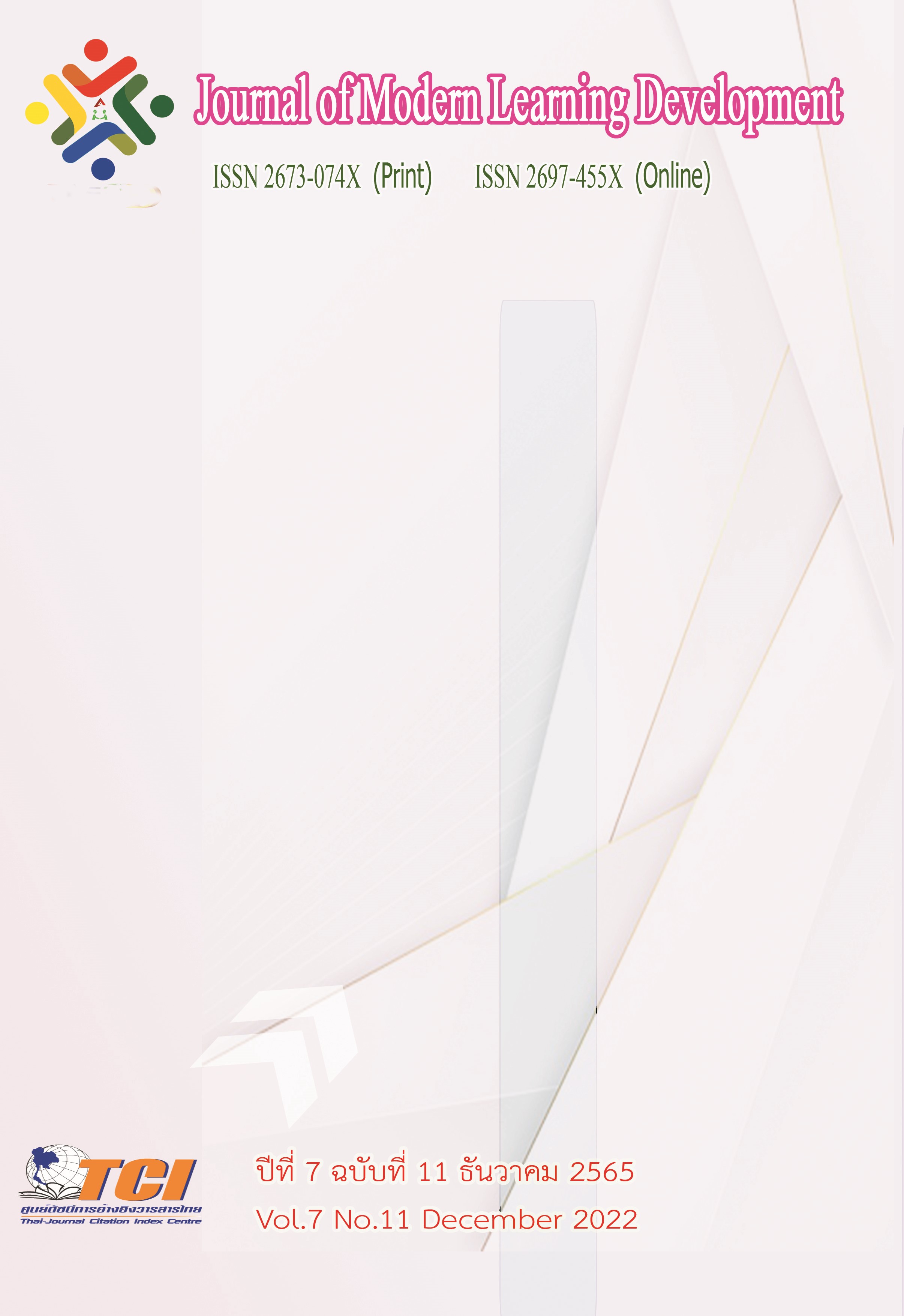Excellent team management and innovation policy model of colleges and University in Liaoning Province
Main Article Content
Abstract
The objectives of this research were: 1) To find and determine of elements and relevant factors of effective policies and innovative team management in art major teachers for private universities on Liaoning province. 2) To formulate the direction and model for team management in art major teacher for private universities in Liaoning province. This research is a mixed method research, including quantitative research and qualitative research. The population consists of 642 art teachers and administrators from 10 universities in Liaoning Province. The sample size was determined by Krejcie and Morgan's Table (1970) and obtained through stratified random sampling technology. There were 261 administrators and teachers in total. Key information providers are 10 experts/professionals, who are presidents or deans and lecturers of art majors from 10 private universities in Liaoning province and project directors, with more than 5 years of work experience. Experience gained through purposeful sampling methods. The tools used for data collection are semi-structured interview form and five point rating scale questionnaire. Statistical data used for data analysis include frequency, percentage, mean, standard deviation, exploratory factor analysis and content analysis.
The results show that:; (1) The teacher team management of art majors in private colleges and universities in Liaoning Province includes four components: talent demand, organizational function management, effective leadership and teaching output; (2) There are 38 guiding principles for the management of teachers' teams of art majors in private colleges and universities in Liaoning Province, including 11 guiding principles for the management of talent demand components, 12 guiding principles for the management of organizational business components, 11 guiding principles for the management of organizational effective leadership components, and 4 guiding principles for the management of teaching achievements output components.
Article Details
References
Ke Wei, Liu tie. (2010). Research on the standardized management of private colleges and Universities Education in Chin. Beijing: Law Press.
Taoxiping. (2010). Private education in China. Beijing: Educational Science Press.
Zhaxibin. (2010). Research on the development and Countermeasures of private colleges and
Universities university. Shijiazhuang: Hebei Education Press.
United States]d. (2014). brucejohnston. Translated by Shenhong. Higher education
finance:Cost sharing from an international perspective. Wuhan: Huazhong University of science and Technology Press.
Paul Sabatier. (2004). Translated by pengzongchao et al. Policy process theory.Shanghai:
life. Read. Xinzhi Sanlian Bookstore press.
Luo Yin. (2014). Research on government guidance and support for the development of small and medium-sized enterprises Private higher education. Education and careers.
Wang qingru. (2012). Research on strategies for improving the running level of private colleges and Universities.
Mao Yunfang, (2011). theory review of western leadership style, enterprise reform and management:12
Duan Shichang, (2012). Cao Feng, a brief introduction to several characteristics of art
discipline education, Northern Literature :161
Lou Chengwu, (2002). principles of modern management, Beijing, Renmin University of China Press.
Li Junjie, analysis of the characteristics of art students in Colleges and strategies for intellectual education, cultural journal, 2015
Wanggenshun. (2012). The construction of modern university system in Private CollegesSWOT Analysis Perspective . Journal of Yellow River University of science and technology.
Yangyaozhong. (2013). The changes of legal norms and the healthy development of private economy Education "; On the improvement of the property right system of private higher Education Journal of Changzhou University (SOCIAL SCIENCES EDITION).
Shengzhengfa, (2008). leimingqiang. Regulation and support: a study of duality The track relationship between government and private universities. Higher Education Research, 2008 (04)
Wangjunsheng. (2012). Research on the development of interactive relationship model Between the government and private universities. Economist (12)
Li ailiang. (2007). The orientation of the government in the field of private higher educationeducation. Exploration of higher education, 03.
Xialuhui. (2014). Reshape the relationship between government and University. 2 China development observation, 2014 (10)
Long Xianzhong. (2004). On the perspective of government role transformationOn the governance of Higher Education. Modern university education, 2004 (01)
Li Qinggang. (2015). The lack and reconstruction of public governance of private education . Educational theory and practice, (11)
Zhangyufang. (2008). On the public governance structure of colleges and Universities Education in China. Jianghan forum, (07)
Zhengyangbo. (2010). Government responsibility in the development of private colleges and Universities Chinese education from the perspective of governance[J] . Journal of Zhejiang Province Shuren University (HUMANITIES AND SOCIAL SCIENCES EDITION).


